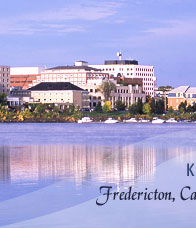Canada sets good example for diversity - speakers
06/06/2011
In the struggle between cultural respect and creating a national identity, some people question whether Canada"s multicultural policies are a help or hindrance.
One of the last Big Thinking lectures at the Congress of the Humanities and Social Sciences took place Friday. Above are Graham Fraser, commissioner of official languages, left, and Gerard Bouchard, a Quebec sociologist and co-chairman of the Bouchard-Taylor Commission on Accommodation Practices Related to Cultural Differences.
But the future looks bright, said Gerard Bouchard. Bouchard is a Quebec sociologist and co-chairman of the Bouchard-Taylor Commission on Accomodation Practices Related to Cultural Differences.
He spoke at the Congress of the Humanities and Social Societies on Friday with the commissioner of official languages, Graham Fraser.
In Canada, a poll asked the children of immigrants to lay out what defined a Canadian identity.
Fraser said responses varied, running on a scale between non-committal vagueness to assertions that it didn"t exist.
Canada is known for its multicultural society. Pluralism is a way to show respect to diversity and human rights, Bouchard said. But he said that like all countries, Canada deals with a tense history of cultural conflict.
He said there"s no cookie-cutter way for a country to manage its modern diversity brought on by globalization. Each must form its own solution based on past anxieties and grievances, he said.
Countries across the world are trying - with varied levels of commitment - to address the growing cultural diversity of the their societies, Bouchard said.
But recently in countries such as France and Germany, there has been a push from the other side, with advocates insisting that there"s no way to have a strong social identity when the traditional foundations beneath the cultural fortress are crumbling.
But Canada"s system is different, Fraser said. Bouchard added we have set an unprecedented example.
I"m not trying to paint a rosy situation, Bouchard said, noting the story is still unfolding. But he said that so far things have gone well.
There"s a multicultural representation and diversity in commercial ads now which would have been unimaginable 30 years ago, he said.
As we move forward, we"re becoming more fluid, more mobile, less static, said Fraser. We are enlarging the sense of "us."
There are still problems though, Bouchard said. Plenty of immigrant professionals still face jobs that are beneath their qualifications or unemployment. But in a country that has cemented both multiculturalism and bilingualism in legislation, the speakers raised the question of whether we were including everyone or just the English and French.
In Canada, there are two official majority languages, but not two official majority cultures, said Fraser, referencing the Official Languages Act and the Canadian Multiculturalism Act.
In terms of finding a perfect balance, he said, Nobody has a magic wand we can wave.
But perhaps rather than focusing on finding that cultural core, the Canadian people can come together under the common denominator of variety, he said.
The congress was co-hosted by the University of New Brunswick and St. Thomas University.
(source: www.dailygleaner.canadaeast.com)
|





